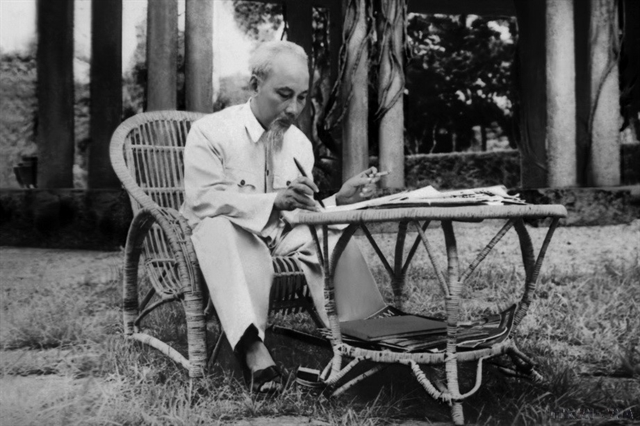.jfif) Opinion
Opinion

Tô Tử Hùng, deputy director of the Department of Aviation Security under the Civil Aviation Authority of Việt Nam, talks to Vietnam News Agency on the vigilance and good work of security forces at Vietnamese airports
 |
| Tô Tử Hùng. Photo: vietnamplus.vn |
Tô Tử Hùng, deputy director of the Department of Aviation Security under the Civil Aviation Authority of Việt Nam, talks to Vietnam News Agency on the vigilance work of security forces at Vietnamese airports
What are the main reasons behind the recent increase of bad behaviour exhibited by airline passengers in our country?
The International Civil Aviation Organisation (ICAO) and the International Aviation Transport Agency (IATA) have classified airline passengers’ bad behaviour into eight categories. They include violations against civil aviation staff, failure to abide by the airline safety regulations including fastening the seat belt when the aircraft is taking off or landing, sexual harassment and others.
In the first 11 months of 2018, the airline industry in Việt Nam served about 100 million passengers, a year-on-year increase of nearly 13 per cent. Increases in the number of passengers are often accompanied by an increase in inappropriate behaviour.
Under the Việt Nam Law on Civil Aviation (2014), all bad passenger behaviours are to be reported to the Airport Security Forces to handle.
What do you think about the airport security staff’s response in the recent incident when a Vietnamese airline staffer was recently beaten by some hooligans at Thọ Xuân airport in Thanh Hóa Province?
As we all know, in an airport there are many things the security staff must keep their eyes on. According to the Việt Nam Law on Civil Aviation, the security force is divided into four categories: airport inspectors, security guards in public places in the airport, professional armed mobile security staff and technical security staff at entrance gates into airport lounges.
In other words, each group has its own specific assignments. However, sometimes bad elements have made concerted efforts to sidetrack security forces so they can infiltrate their selected targets.
In the case of the Thọ Xuân incident, the mobile security forces took appropriate actions by arresting the instigators and handing them over to the police.
Following the incident, all parties concerned sat together to draw on the experience for the future.
What are the lessons learned from the Thọ Xuân incident?
Following the incident, the Director of the Civil Aviation Authority of Việt Nam issued an official letter asking all concerned units to heighten their vigilance to detect and deter any illegal activities. Of course, security forces in the airport should closely follow local policy in maintaining law and order.
What sanctions are to be given to the violators?
Government Decree 147, issued in 2013, set various levels of sanctions against civil aviation violations on both domestic and international flights. Under the decree, the airlines are given the right to reject service for any passenger that will bring about risks to their services. This regulation has already been written in the aviation law.
Over the past 20 years, there were no fatal cases in the Việt Nam’s civil aviation sector. This has been acknowledged by the international community. All safety inspection visits conducted by the ICAO to Việt Nam since 2005 have appreciated the safety records of the Vietnamese airlines. As a result, Việt Nam stands in the middle of the international ranking by ICAO. This is an important milestone for the Việt Nam Civil Aviation to develop in the future.
According to an analysis of IATA, from 2007-10, there was only one case of verbal attack in every 1,600 civil aviation flights. But from 2011 up to now, the frequency of verbal attacks has increased to one in every 1,200 flights. This is an indication that the fast development of the world aviation will be coupled with an increase of verbal attacks by passengers.
In Việt Nam alone, it is reported that in the first 11 months of 2018, there were 13 cases – an increase of three cases against 2017. These cases were either between passengers or between the passengers and the airport personnel. — VNS




